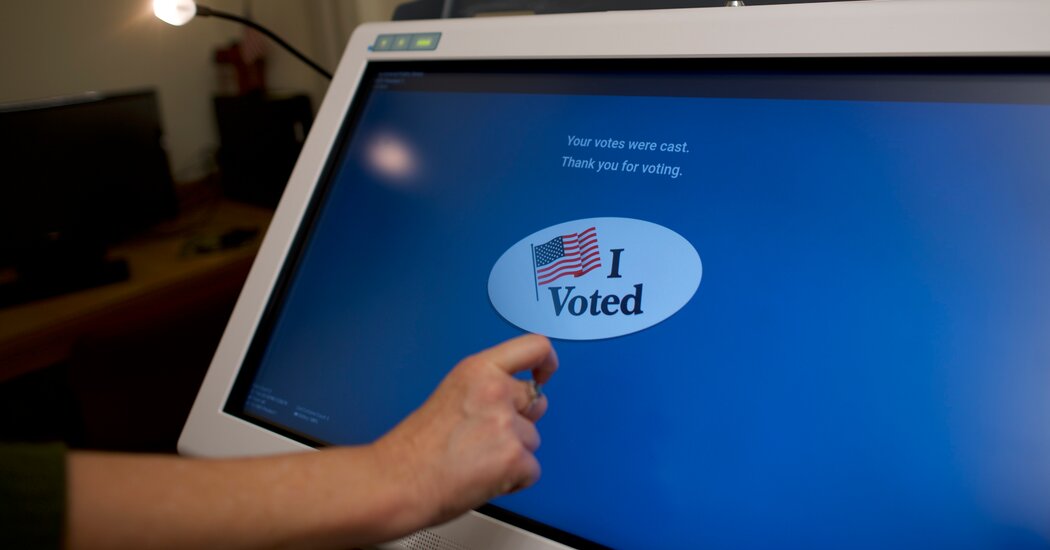One voter’s mistake has been transformed into a voter fraud conspiracy theory, catapulted into the national spotlight by Representative Marjorie Taylor Greene.
All it took was one mistake by a voter in Georgia to propel a conspiracy theory to nationwide attention and the upper echelons of Republican politics.
Election officials in the state said that the voter, a woman whose name they did not disclose, visited a polling site in Whitfield County last week and used a touch-screen voting machine to cast her ballot. She mistakenly selected one candidate’s name when she had intended to choose another.
The episode was over almost as soon as it began: The voter tried again, fixed the mistake and successfully cast her ballot. But online, the story quickly took on a life of its own, catapulted to prominence by Representative Marjorie Taylor Greene, Republican of Georgia, and transforming into an elaborate conspiracy theory involving voting machines that were somehow “flipping” votes between candidates en masse.
The anecdote is among the first voter fraud stories to gain national attention ahead of Election Day, despite county officials’ repeated efforts to refute any suggestion that the issue has affected more than a single voter. As scores of voters flood early voting sites in swing states like Georgia, election deniers are searching for stories that can support their belief that election fraud is widespread, despite the repeated findings of courts and election officials that it is not. Even individual instances of voter fraud are extremely rare in American elections.
Claims that electronic voting machines flipped votes were a central part of former President Donald J. Trump’s voter fraud claims after the 2020 election. Allies of Mr. Trump swarmed news networks and courthouses with baseless claims that electronic voting machines, including those made by Dominion Voting Systems, were somehow altering votes. Dominion later sued several Trump allies and media organizations for spreading the falsehoods, winning millions in settlements.
No evidence has ever emerged that the machines were faulty, and statewide audits have confirmed the tallies presented by the machines.
